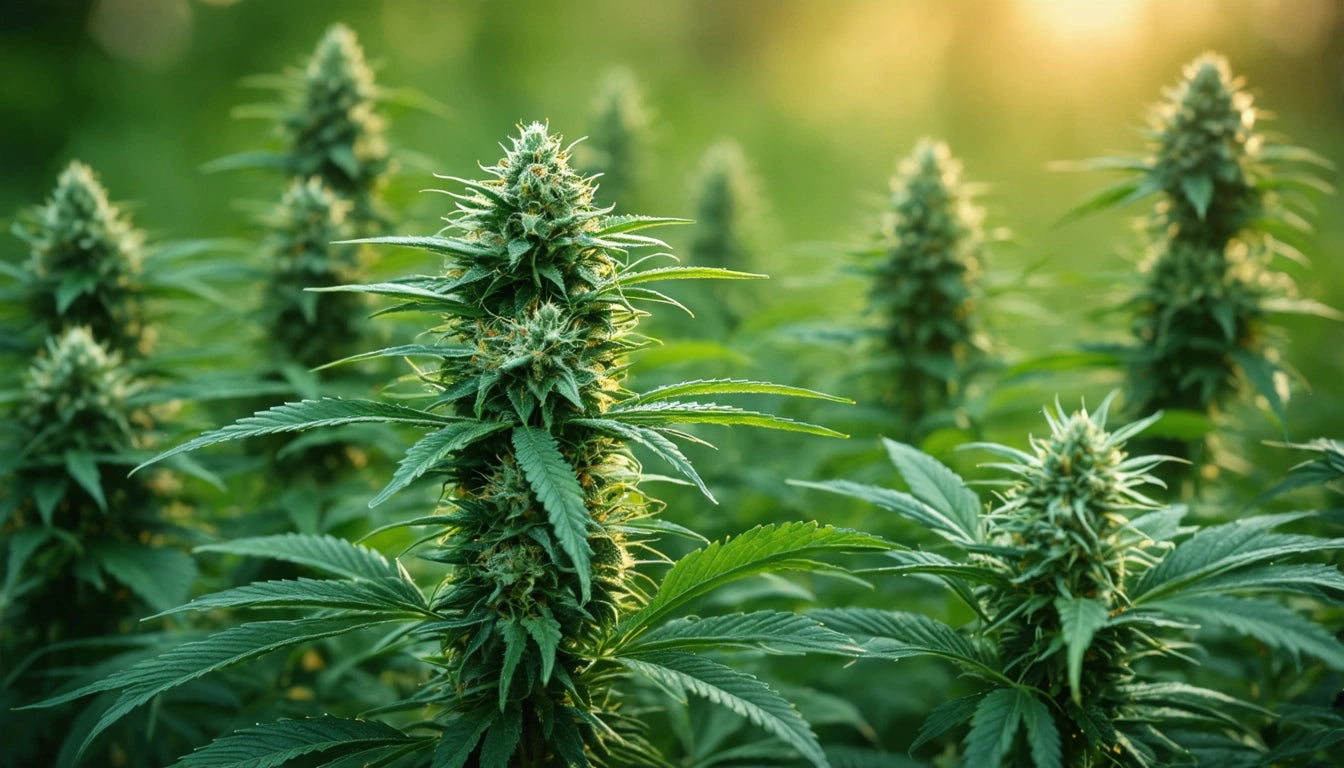Table of Contents
Does Smoking Weed Affect Memory and Cause Forgetfulness?
Cannabis use and its effects on memory have been subjects of ongoing scientific research and personal anecdotes. Many users report experiencing forgetfulness or memory lapses while under the influence, leading to common questions like "does weed make you forget things" or "does pot make you forgetful." Understanding these effects requires examining how cannabis interacts with the brain's memory systems.
How Cannabis Affects Memory: The Science Explained
Cannabis contains compounds called cannabinoids, with THC (tetrahydrocannabinol) being the primary psychoactive component. THC binds to cannabinoid receptors in the brain, particularly in regions responsible for memory formation and retention like the hippocampus.
When THC activates these receptors, it disrupts the normal functioning of these brain regions. According to research on marijuana's impact on memory, THC specifically interferes with the hippocampus, which plays a crucial role in forming new memories and learning.
The Endocannabinoid System and Memory
The brain's endocannabinoid system regulates various cognitive functions, including memory processing. When cannabis introduces external cannabinoids into this system, it can temporarily alter how memories are formed, stored, and retrieved. This disruption explains why many users experience short-term memory issues while high.
Short-Term Memory Effects of Cannabis Use
Short-term or working memory is most noticeably affected by cannabis use. Common effects include:
- Difficulty recalling recent events or conversations
- Trouble maintaining focus or attention
- Challenges with learning new information
- Impaired ability to follow complex instructions
These effects are typically temporary and most pronounced during active intoxication. As studies on marijuana's effects on the body and mind show, most users return to baseline cognitive function once the immediate effects wear off.
Long-Term Memory Concerns with Regular Cannabis Use
Research on long-term memory effects from regular cannabis use shows more complex patterns. Some studies suggest that heavy, prolonged use may lead to more persistent memory issues, particularly when use begins during adolescence when the brain is still developing.
A study published in JAMA Internal Medicine found that long-term heavy cannabis users scored lower on verbal memory tests compared to non-users. However, it's important to note that many factors influence these outcomes, including:
- Age when cannabis use began
- Frequency and duration of use
- Potency of products consumed
- Individual biological factors
For occasional adult users, research suggests minimal long-term memory impairment after periods of abstinence. This aligns with findings detailed in research on weed's impact on intelligence, which shows most cognitive effects are reversible with abstinence.
Factors That Influence How Weed Affects Memory
THC:CBD Ratio
The ratio of THC to CBD (cannabidiol) in cannabis products significantly influences memory effects. CBD may actually mitigate some of THC's negative cognitive impacts. Products with balanced ratios typically cause less memory disruption than high-THC varieties.
Consumption Method
How cannabis is consumed affects the intensity of memory impairment. Smoking or vaping delivers THC to the brain rapidly, while edibles produce more gradual but potentially longer-lasting effects. This difference in onset and duration can impact memory function differently.
Individual Tolerance
Regular users often develop tolerance to some of cannabis's cognitive effects. As explored in why cannabis affects people differently, genetic factors, metabolism, and previous exposure all influence how significantly memory is affected.
Memory Recovery After Cannabis Use
For most users, memory function returns to normal after the acute effects of cannabis wear off. Research indicates that:
- Short-term memory typically recovers within hours after use
- Regular users who stop may see improvement in memory function within days or weeks
- Even long-term heavy users generally show memory improvement after extended abstinence
A 2018 study found that memory function in adolescent heavy users improved significantly after just one month of abstinence, suggesting the brain's remarkable ability to recover from cannabis-related memory effects.
It's worth noting that proper storage of cannabis products is essential not only for maintaining potency but also for safety. Using appropriate child-resistant packaging, which prevents accidental ingestion by children, is crucial for responsible cannabis use and storage at home.
Protecting Cognitive Function While Using Cannabis
For those concerned about cannabis and memory effects, several strategies may help minimize cognitive impact:
- Choose balanced THC:CBD products rather than high-THC varieties
- Consider microdosing (using minimal effective amounts)
- Avoid use during periods requiring optimal memory function
- Take regular tolerance breaks to reset sensitivity
- Stay hydrated and well-rested, as dehydration and fatigue can worsen memory effects
- Maintain overall brain health through exercise, proper nutrition, and mental stimulation
Understanding how cannabis affects your individual memory function can help you make informed decisions about consumption patterns. As noted in research on weed's effects on mood and perception, being mindful of your unique response to cannabis allows for more responsible use.
While cannabis can indeed cause temporary forgetfulness and memory challenges, most effects are transient for occasional adult users. By understanding these mechanisms and practicing mindful consumption, users can better manage potential memory impacts while still enjoying the benefits cannabis may offer for other aspects of wellbeing.











Leave a comment
All comments are moderated before being published.
This site is protected by hCaptcha and the hCaptcha Privacy Policy and Terms of Service apply.